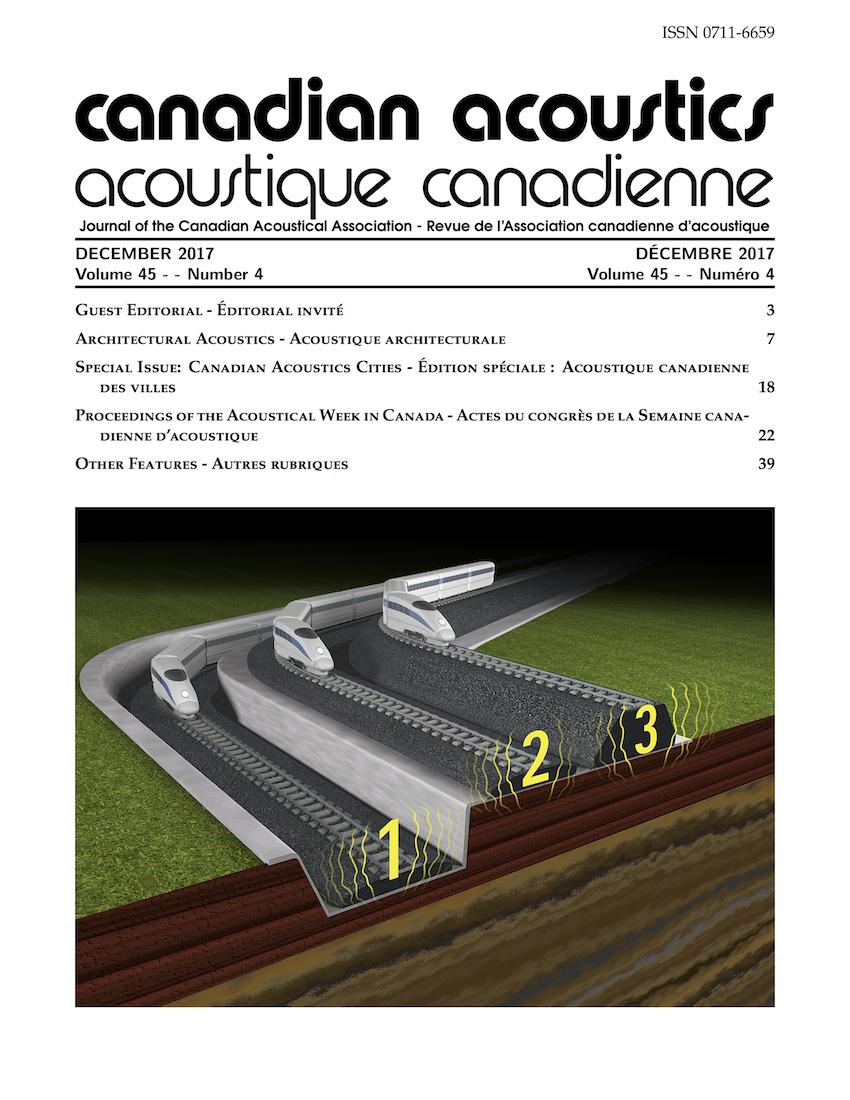Challenges in Intelligibility Analysis of Public Address and Emergency Notifications Systems
Abstract
During the past decade, there has been an increase in the requirements for Public Address and Emergency Notifications Systems (PAGA). It migrated from audibility criteria to intelligibility criteria. Checking simple charts showing sound levels at a distance is no longer enough and intelligibility must be evaluated. This task comes with several challenges as it requires more throughout inputs regarding the speakers and the spaces where the messages need to be intelligible. Also, an adequate methodology and the uncertainty in the evaluation tools are to be considered as the PAGA may be tested during commissioning and must show compliant results. Strategies to evaluate PAGA intelligibility scores are discussed along with the challenges that one could face in those kind of analysis.
Additional Files
Published
How to Cite
Issue
Section
License
Author Licensing Addendum
This Licensing Addendum ("Addendum") is entered into between the undersigned Author(s) and Canadian Acoustics journal published by the Canadian Acoustical Association (hereinafter referred to as the "Publisher"). The Author(s) and the Publisher agree as follows:
-
Retained Rights: The Author(s) retain(s) the following rights:
- The right to reproduce, distribute, and publicly display the Work on the Author's personal website or the website of the Author's institution.
- The right to use the Work in the Author's teaching activities and presentations.
- The right to include the Work in a compilation for the Author's personal use, not for sale.
-
Grant of License: The Author(s) grant(s) to the Publisher a worldwide exclusive license to publish, reproduce, distribute, and display the Work in Canadian Acoustics and any other formats and media deemed appropriate by the Publisher.
-
Attribution: The Publisher agrees to include proper attribution to the Author(s) in all publications and reproductions of the Work.
-
No Conflict: This Addendum is intended to be in harmony with, and not in conflict with, the terms and conditions of the original agreement entered into between the Author(s) and the Publisher.
-
Copyright Clause: Copyright on articles is held by the Author(s). The corresponding Author has the right to grant on behalf of all Authors and does grant on behalf of all Authors, a worldwide exclusive license to the Publisher and its licensees in perpetuity, in all forms, formats, and media (whether known now or created in the future), including but not limited to the rights to publish, reproduce, distribute, display, store, translate, create adaptations, reprints, include within collections, and create summaries, extracts, and/or abstracts of the Contribution.


